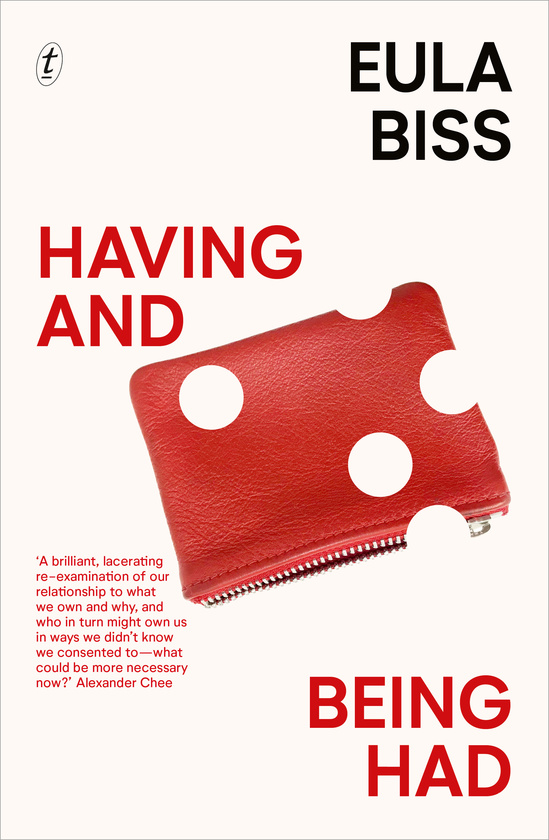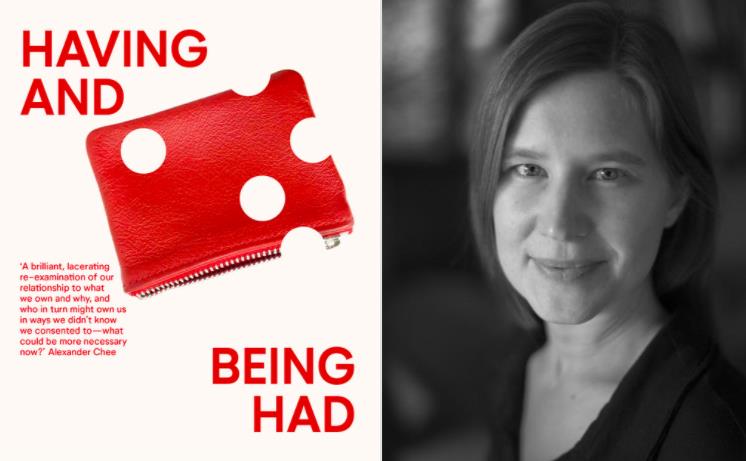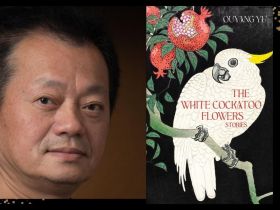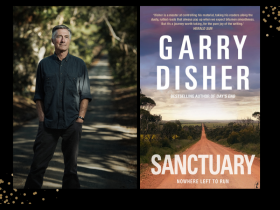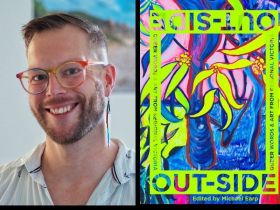Having and Being Had follows author Eula Biss wading through hallmarks of the middle class, from a twenty-something underemployed writer in New York to the purchase of a house in Chicago as a successful author and stable university employee preceding her fortieth birthday.
Structured by memories and anecdotes rather than linear analysis, Having and Being Had emerges as an anthropological diary infused contemporary analysis and historical notes. Biss’ interest in the relationship between literary icons like Woolfe, Marx and Stein and their wealth and pop culture references are interlaced with conversations with friends, colleagues and family, alongside the process of writing about these topics.
Through this, Biss’ style achieves a compelling philosophical drift with intellectual anchoring, piercing analysis and reflection with subtle humour. Perhaps she can’t take herself seriously because the book, as she suggests, is a direct response to ‘the paranoia that life under capitalism produces.’
When she can’t metaphorise or juxtapose, she questions: Can you move class? Where does money come from? Is there something worth more than security? Constantly: what is capitalism?
The easily consumable chapters – limited to two to three pages – read as sublime devotionals, each starting with a singular theme which develops into another to frame the following mini-essay. The seamless transitions are as addictive as 20-minute Netflix episodes, and the repeated chapter names, particularly Art and Work, allow Biss to continually reconsider and reframe her concepts, rather than provide ready conclusions.
She hones in on small details, probing the rituals of capitalism, with a focus on the anti-democracy of wealth distribution defined by gender, racial and class inequality: the absurdity of owning a gravy boat; 2nd hand piano as the scent of the middle class; tea as colonialism. When not looking at metaphors, she is observing contradictions: the cycle of gaining and losing under capitalism; the thin line between precarity and stability; white women as both victims and oppressors under capitalism (white women could own slaves despite being property themselves, and such self-serving racism continues under capitalism today). When she can’t metaphorise or juxtapose, she questions: Can you move class? Where does money come from? Is there something worth more than security? Constantly: what is capitalism?
Given her position as a writer, she often returns to the work of an artist, which she considers to exist outside the realm of blue-collar and white-collar labour. This is probably Biss’ only blind spot, yet she reckons with removing art from the regularities of work under capitalism by arguing, ‘art unmakes the world made by work.’For readers who have encountered poverty, or unexpectedly risen out of it to know security, Biss’ self-analytical perspective, of being both inside and outside the rewards of a system, is terrifyingly accurate. For those unaware of the experience of income inequality, this work presents a study of – and argument for – self-awareness of affluence. For the creative class, her confrontation of the fiscal rhythms of an artist’s time and service offers rare, candid insight.
Having and Being Had doesn’t extract threads of logic from capitalism nor produce a clear-sighted economist of its reader. Rather, it gives a framework to survey anxieties of the vague yet controlling infrastructures one is complicit within. Biss performs this scrutinising exercise as, ‘Artists can’t be expected to remain loyal to a regime that has made their art worthless.’ In this, Having and Being Had is a missive in truly seeing the damp incongruities of life under capitalism.
Five stars ★★★★★
Having and Being Had
Eula Biss
Text Publishing
Extent: 336pp
Format: Paperback
Publication date: 15 September 2020
ISBN: 9781922268013
AU Price: $34.99
Categories: Society & Culture, Essays, Non Fiction
